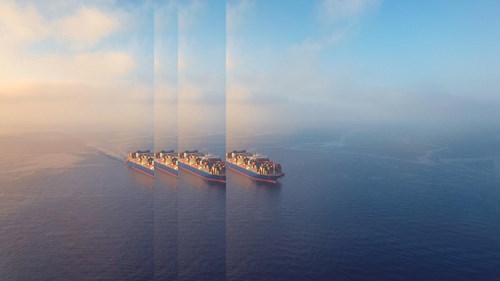European Supply Chain Act (CSDDD) nearing the finish line
On 14 December 2023, after long negotiations, the European Council and the European Parliament reached provisional agreement regarding the contents of the Corporate Sustainability Due Diligence Directive (“CSDDD”, or “CS3D”).
The directive, also known as the European Supply Chain Act or “due diligence directive”, is intended to improve the human rights situation, protect the environment and drive efforts towards international climate protection goals. The provisional agreement must still be formally adopted by both institutions.
Because the final wording of the directive will probably not be published for a few weeks, our findings are based on press releases from the European Council and the European Parliament, including oral statements made at the press conference.
Below we have summarised the essential points (I.) and analysed the extent to which the CSDDD differs from the German Supply Chain Act (II.).
I. Main elements
Scope
The CSDDD will apply to large companies that have more than 500 employees and net worldwide turnover of over €150 million. Companies with more than 250 employees and net turnover of more than €40 million will be subject to the CSDDD if they generate at least €20 million in a high-risk sector. High-risk sectors include (i) manufacture and wholesale trade of textiles, clothing and footwear, (ii) agriculture including forestry and fisheries, (iii) manufacture of and wholesale trade in food and (iv) extraction of and wholesale trade in mineral resources.
Companies that have not been established under the laws of an EU Member State are likewise subject to the CSDDD if they have over €300 million net turnover generated in the EU, three years from the entry into force of the directive. The Commission has announced that it will publish a list of such companies.
Climate and environmental protection
The CSDDD commits itself to the 1.5° C goal set out in the Paris Agreement. Companies subject to the CSDDD are required to adopt a plan ensuring that their business model and strategy are compatible with the Paris Agreement (transition plan).
The due diligence obligations will also address environmental concerns, e.g. harmful soil change, water or air pollution, harmful emissions or excessive water consumption.
Supply chains
The due diligence obligations will not extend solely to a company’s own business operations and its suppliers (upstream), but in some cases will also include activities undertaken after production (downstream), such as warehousing, distribution and recycling.
Civil liability
The CSDDD establishes a period of five years to bring claims by those concerned by adverse impacts (including trade unions or NGOs). Injunctive measures and legal aid are intended to enable an effective enforcement.
Supervision and penalties
The supervisory authorities of the Member States can initiate investigations and impose penalties, including fines of up to 5% of worldwide net turnover, and impose and publicise violations (“naming and shaming”). The Commission will establish a network of national supervisory authorities (European Network of Supervisory Authorities).
Financial sector
A trouble spot in the trilogue was the issue of whether the financial sector, e.g. credit institutes, asset managers and investment firms, should be exempted from the CSDDD. In this regard, it was stated at the press conference on 14 December 2023 that financial sector companies should also be obliged to fulfil the due diligence obligations in their own business operations and in regard to suppliers (upstream) as well as to contribute to achievement of the climate protection goal of the Paris Climate Agreement in the context of a transition plan. It was also stated that the Commission would review whether the financial sector will be completely subject to the CSDDD in the future.
II. Schedule and anticipated amendments to the German Supply Chain Act
The CSDDD will enter into force on the twentieth day after its publication in the Official Journal of the European Union. The Member States will then have two years to transpose the directive into national law. The German legislator can be expected to make adjustments to the German Supply Chain Act in several places.
The chart below compares the initial information regarding the CSDDD with the provisions of the German Supply Chain Act:
|
Topic |
German Supply Chain Act |
CSDDD |
|
Scope |
Companies with
|
Companies
Companies
Non-EU companies
|
|
Due diligence obligations |
Companies must implement the due diligence obligations
|
Companies must implement the due diligence obligations
|
|
Climate change/ Climate goals |
The German Supply Chain Act does not include any climate goals or measures to protect the climate or mitigate climate change |
Companies subject to the CSDDD must draft and implement a transition plan to mitigate climate change. Companies are to be climate-neutral by 2050. |
|
Financial sector |
The German Supply Chain Act applies to all companies that fall under its scope, i.e. including companies in the financial sector. |
Apparently, financial sector companies must implement the due diligence obligations in their own business operations and towards their suppliers (upstream). Financial sector companies must also contribute to the achievement of the goals of the Paris Agreement. |
|
Management remuneration |
The German Supply Chain Act has no influence on company directors’ remuneration. |
For companies with more than 1,000 employees, climate goals will apparently have an effect on directors’ remuneration. |
|
Civil liability |
The German Supply Chain Act does not provide for civil liability. Civil liability is possible under other German laws. |
Civil liability is to be enabled. |
|
Possible fines |
Up to 2% of average annual turnover if annual turnover averages more than €400 million |
Up to 5% of worldwide net turnover |
Information on our range of advisory services for all aspects of supply-chain compliance, including the German Supply Chain Act and the CSDDD, can be found here.












